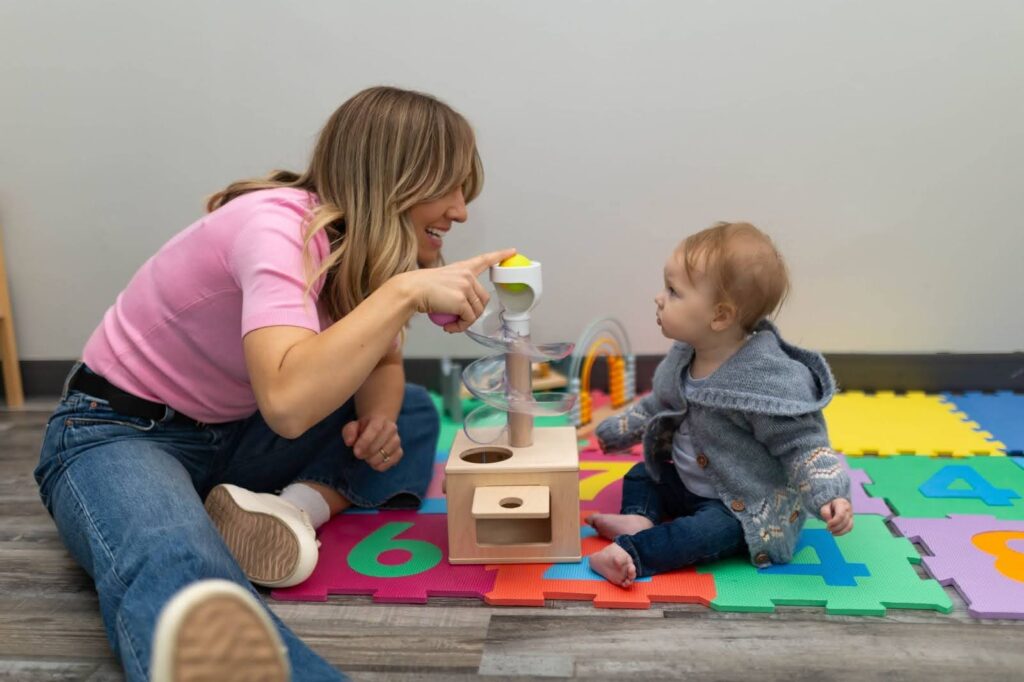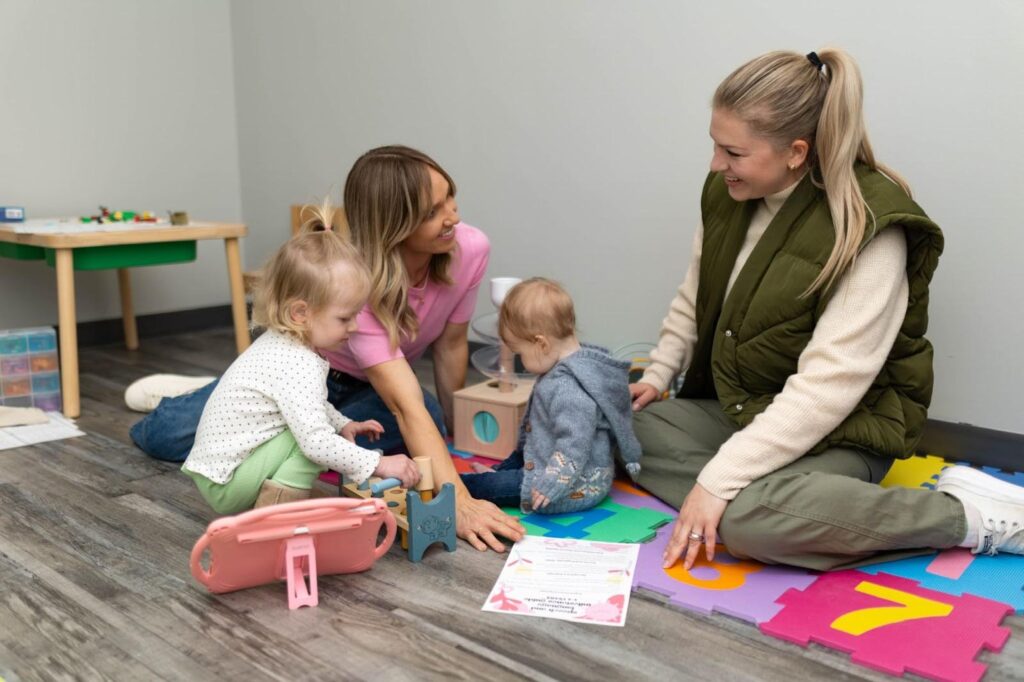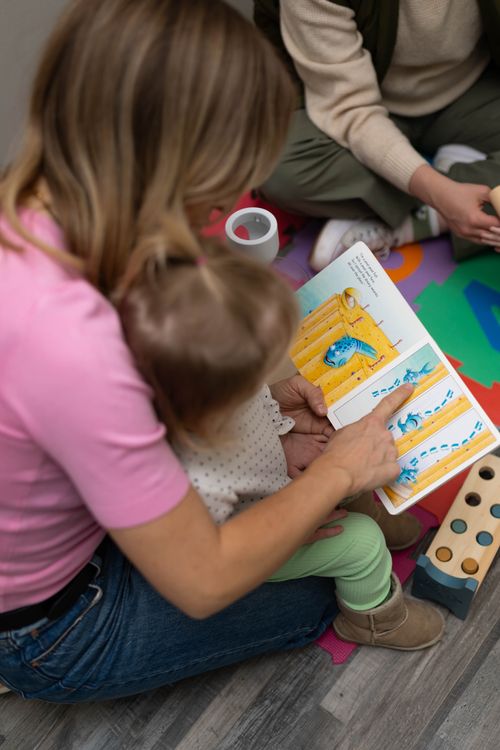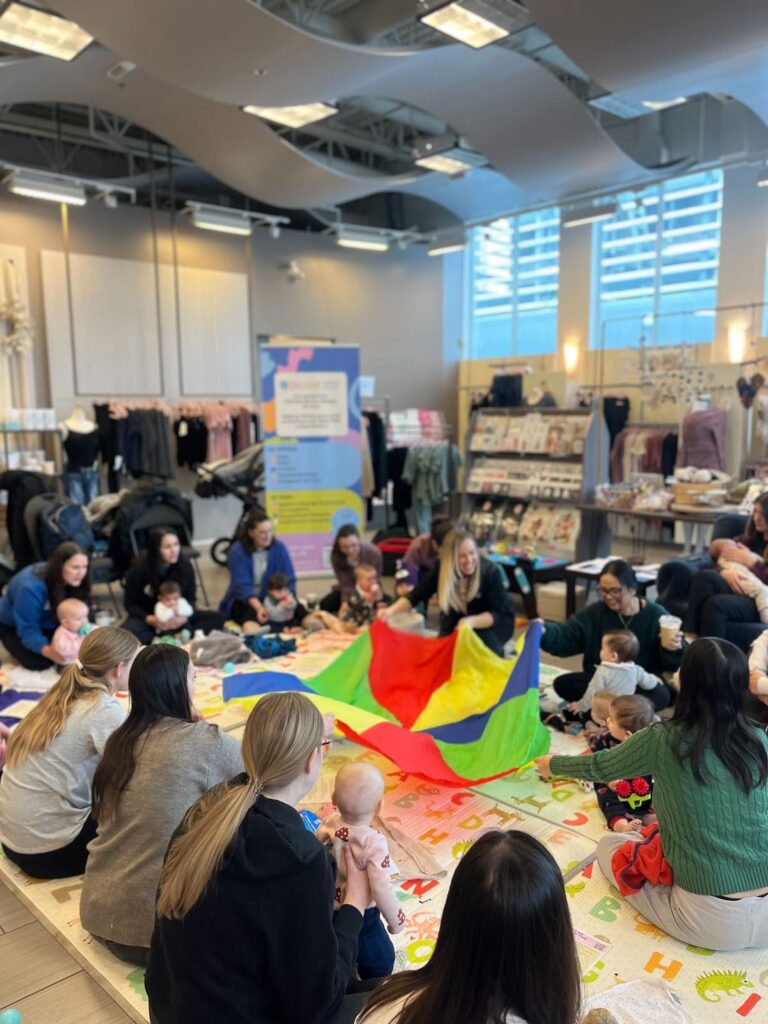Areas of Focus
Infant and Toddler Communication Development
Baby and Toddler Services
How It Works
Step 1: Book a 1:1 Check-In
We get to know your child, explore their communication skills, and learn about your family’s goals.
Step 2: Receive a Clear, Personalized Plan
You’ll leave with practical strategies, answers, and peace of mind.
Step 3: Watch Their Confidence (and Words) Grow
We support progress that feels good—no pressure, no overwhelm.
Receptive Language
How your baby understands and processes what they hear.
Expressive Language
How they use sounds, gestures, and words to communicate.
Pre-Linguistic Skills
Early communication skills like imitation, babbling, gesturing, and making eye contact.
Play & Social Skills
How they engage with others and explore through play.
These foundational skills help build strong communication and social connections.
One-time assessment or periodic check-ins!


Speech Sound Disorders
- Articulation is how the lips, tongue, jaw, and palate work together to form speech sounds. Some children struggle with this, making their speech unclear—or even difficult to understand. This is called an articulation delay or disorder, and it’s one of the most common communication challenges in young children.
- By age 3, your child’s speech should be mostly understandable. While some sound errors are normal, all speech sounds should be mastered by age 7. Here’s a general guide to speech sound development:
- 1.5 – 2 years: b, p, m, w, h
- 2 years: n, t, d, f, y
- 2–3 years: k, g, ng
- 3–4 years: s, z, v
- 3–5 years: l
- 3.5 – 6 years: sh, ch, j
- 4–6 years: r, th, consonant blends

- If you have any concerns regarding the above sounds or your child is 3 or older and still hard to understand, early intervention can make a big difference! In many cases, once a child is physically ready, speech sound errors can be corrected quickly. Contact us to get started—we’re here to help!
Phonology
Sometimes, children develop speech patterns that make their words harder to understand. This can include:
- Final consonant deletion – leaving off the ends of words (e.g., saying “ca” instead of “cat”)
- Fronting – replacing k and g sounds with t and d (e.g., saying “tat” for “cat”)
- Stopping – using a hard consonant like t, d, k, or g instead of a flowing sound like s, f, or sh (e.g., saying “tun” for “sun”)
- Cluster reduction – simplifying consonant blends by dropping a sound (e.g., saying “wim” instead of “swim”)
Fluency/Stuttering
Between the ages of 2 and 4, many children go through a phase of typical speech dysfluency, often repeating words or phrases as their language skills grow. However, for some children, true stuttering can emerge during this time. If your child has several of the following risk factors, it may be a good idea to seek support from a speech-language pathologist:
- Male (stuttering is four times more common in boys)
- Family history of stuttering
- Repetitions lasting longer than three months
- Sound repetitions rather than whole-word repetitions
- Physical tension while speaking
- Blocks, where no sound comes out despite visible effort
Fluency therapy focuses on strategies to support smoother speech while also building confidence during moments of dysfluency. Contact us to learn more about how we can help.
Language Delays
- At Dream Pediatric Services, our speech-language pathologists (SLPs) specialize in evaluating and treating various language delays in children. Language delays occur when a child’s language development follows the typical sequence but at a slower rate, affecting their ability to understand and/or use language effectively.
- Types of Language Delays We Address:
- Receptive Language Delays: Challenges in understanding or processing spoken language.
- Expressive Language Delays: Difficulties in using words, sentences, or gestures
- Our Approach to Treatment
- Our SLPs employ evidence-based strategies tailored to each child’s unique needs. Interventions may include:
- Play-Based Therapy: Utilizing play to encourage language development in a naturalistic setting.
- Parent and Caregiver Training: Equipping families with techniques to support language growth at home.
- Individualized Therapy Plans: Focusing on specific language goals to enhance communication skills.
- Early intervention is crucial, as timely support can significantly improve a child’s language outcomes. If you have concerns about your child’s language development, contact us to schedule an assessment with one of our experienced SLPs.


Infant and Toddler Communication Development
- Baby Check-Ins (use the picture below with two adults from images folder)
Baby and Toddler Check-Ins: What will the SLP evaluate?
What will the SLP evaluate?
Receptive Language
How your baby understands and processes what they hear.
Expressive Language
How they use sounds, gestures, and words to communicate.
Pre-Linguistic Skills
How they engage with others and explore through play. These foundational skills help build strong communication and social connections.
Play & Social Skills
How they engage with others and explore through play.
- One-time assessment or periodic check-ins!


Baby Talk Group
is a fun, interactive group designed for parents and babies to build strong early communication skills through play, songs, and connection. Led by a pediatric speech-language pathologist, this group supports babies in developing the foundational skills needed for language, while giving parents practical strategies to encourage speech and communication at home.
What We Focus On:
- Early communication skills like eye contact, gestures, and turn-taking
- Encouraging babbling and first words
- Understanding what your baby is communicating before they use words and how to promote further communication
- Simple, research-backed strategies to support language development
- Play-based activities that make learning natural and fun
Baby Talk is a welcoming space where you can bond with your baby, connect with other parents, and feel confident in supporting your child’s communication journey. Whether you have concerns about your baby’s speech development or just want to learn more about fostering early language, this group is for you!
Join us for Baby Talk and help your little one build the foundation for strong communication skills.

